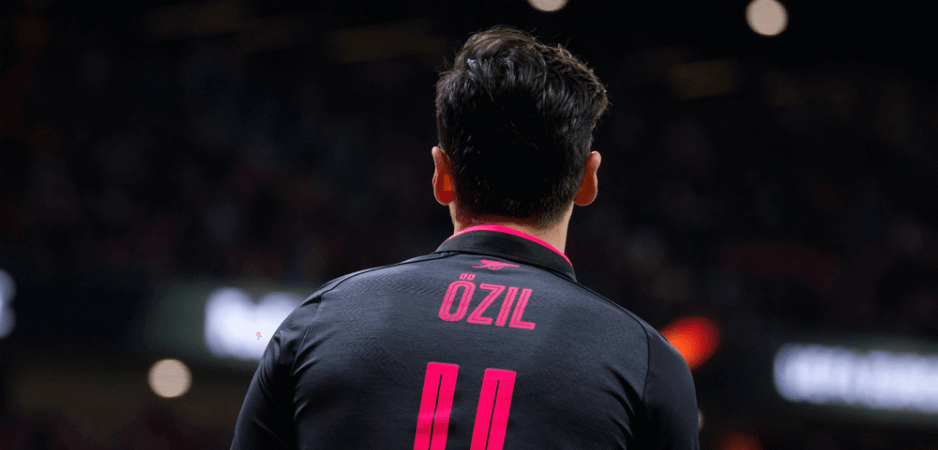The affair might have passed relatively quickly had it not been for the success of the far-right Alternative for Germany party in the 2017 federal election.
Germany’s performance in the FIFA World Cup in Russia was nothing short of a disaster. The 2014 champion came in dead last in its group, losing the final match against South Korea by two goals to nil. This is not meant to disparage South Korean football. They had an excellent game plan and deserved to win. The Germans did not, on both accounts.
Success has many fathers — failure is an orphan. In this case it is Mesut Özil, the German offensive midfielder born in Gelsenkirchen, home of Schalke 04 football club, who is currently in the service of London’s Arsenal. Özil, who has Turkish roots, played a key role in securing Germany’s title in Brazil. With more than 90 nominations to the German national team, he was a central element in Joachim “Jogi” Löw’s tactical calculations for more than a decade. Yet after Germany’s unexpected first-round elimination in Russia, Özil became the scapegoat. This had little to do with his performance on the pitch. In fact, in a lackluster team that played without much esprit, Özil was among the better players, even if his game lacked inspiration.
Yet top German Football Association officials openly singled out Özil, holding him responsible for the German team’s dismal performance. In response, Özil declared his immediate retirement from the national team, accusing the association of xenophobia and racism. The affair says much about the incompetence currently pervading the top echelons of the association as it does about the psychological state of Germany itself.
What differentiated Özil from his fellow players in the national team, and what made him vulnerable to outside attacks, was his photo shoot ahead of the World Cup with Recep Tayyip Erdoğan, Turkey’s elected autocrat. The event was a brilliant maneuver on the part of the Turkish president in support of his re-election bid. Germany is home to hundreds of thousands of Turkish citizens eligible to vote in the presidential election. A portrait with Mesut Özil, the most successful Turkish-German contemporary football player and, as such, an icon for Turkey’s diaspora in Germany, could only but boost Erdogan’s appeal among Turkish voters in Germany.
For Özil, however, the photo shoot turned into a PR disaster. Not only because he appeared to support a politician known for persecuting opponents in the media and public service, but also for seeming to suggest that his loyalties lay with Turkey first and Germany second. This was seen as a statement that threatened to undermine Germany’s official narrative of being a country that had successfully managed to integrate its growing “population with a migratory background.” Standing next to Turkey’s controversial president was certainly not an expression of successful integration.
The affair might have passed relatively quickly had it not been for the success of the far-right Alternative for Germany party (AfD) in the 2017 federal election. With more than 12% of the vote, the AfD was Germany’s first radical right-wing populist party to enter the Bundestag. The success of a party that made questions of migration and integration central to its election campaign sent jitters through Germany’s political establishment. Under the circumstances, the Özil affair, which appeared to prove the party’s point, was particularly embarrassing for the established parties.
More importantly, the Özil affair has once again raised a touchy issue — the question of nationalism in Germany. For a long time after the establishment of the Federal Republic of Germany in 1949, nationalism was a taboo. Surveys regularly showed that West Germans (together with the Dutch) were the least likely in Western Europe to declare national pride. Flying the national flag in a public place such as a football stadium was frowned upon, and having to listen to the national anthem made many young Germans feel rather uncomfortable.
This has changed over the past few decades, with an increasing number of fans waving the German flag during international events. At the same time, there was growing pressure on members of the national football team to actively move their lips during the playing of the national anthem (it was the legendary Franz Beckenbauer who introduced the duty to sing the national anthem in 1984 when he was coach of the national team). Some newspapers went as far as to keep their readers informed as to who sang — and who did not sing — the national anthem. Hardly surprising, Özil was always among those who didn’t.
There is nothing wrong with waving the national flag during football games. Neither is there anything wrong with singing the national anthem — even in Germany. International football events, for better or worse, have always been more than just a game, particularly when it comes to the World Cup or the European championship. The so-called “Miracle of Bern,” when Germany won in the final of the 1954 World Cup against Hungary, continues to be evoked as a decisive point of departure in postwar German history, restoring national pride to an utterly defeated nation.
What is wrong, however, is to make singing the national anthem before an international game a litmus test of being a “true” German (or French for that matter). There is broad support for this kind of test. A few weeks before the World Cup, a representative survey found two thirds of respondents agreeing with the statement that members of the national teams should be required “unambiguously” to come out in support of Germany and German values; more than 50% said the players should “categorically” sing the national anthem.
Without doubt, the Özil affair marks another step toward Germany’s becoming a “normal” nation.
*[Centre for Analysis of the Radical Right is a partner institution of Fair Observer.]
The views expressed in this article are the author’s own and do not necessarily reflect Fair Observer’s editorial policy.
Photo Credit: Christian Bertrand / Shutterstock.com
Support Fair Observer
We rely on your support for our independence, diversity and quality.
For more than 10 years, Fair Observer has been free, fair and independent. No billionaire owns us, no advertisers control us. We are a reader-supported nonprofit. Unlike many other publications, we keep our content free for readers regardless of where they live or whether they can afford to pay. We have no paywalls and no ads.
In the post-truth era of fake news, echo chambers and filter bubbles, we publish a plurality of perspectives from around the world. Anyone can publish with us, but everyone goes through a rigorous editorial process. So, you get fact-checked, well-reasoned content instead of noise.
We publish 2,500+ voices from 90+ countries. We also conduct education and training programs
on subjects ranging from digital media and journalism to writing and critical thinking. This
doesn’t come cheap. Servers, editors, trainers and web developers cost
money.
Please consider supporting us on a regular basis as a recurring donor or a
sustaining member.
Will you support FO’s journalism?
We rely on your support for our independence, diversity and quality.






